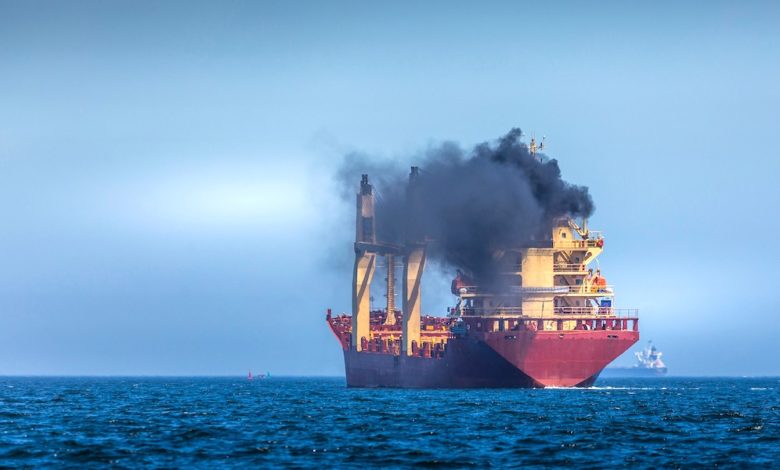Shipping and climate: all hands on deck

Dr Simon Bullock writes for Splash today, with analysis from researchers at the Tyndall Centre, University of Manchester, on shipping climate targets ahead of the upcoming MEPC80 at the IMO.
When sailing directly into a dangerous storm, timely decision-making and decisive action is understandably essential. Delaying a change in direction risks taking longer to reach safe harbour, and taking more of a beating before limping into port. This also applies when facing up to climate change.
The tendency to focus on the long-term targets, (to reach net zero by 2050), ignores the hard truth; what is most important is action this decade. If we do not at least halve global emissions before 2030, enough CO2 will already be in the atmosphere to overshoot the Paris 1.5°C climate change goal. Temperature rise and all its attendant damage will be locked-in, as will growing risks of passing climate “tipping points”, where climate impacts jump-shift into a new and mostly irreversible state. Six of these tipping points become “likely” above 1.5°C warming. This insight has big implications for shipping, and the sector’s crucial IMO MEPC80 meeting this July where the IMO has one last chance to lead the shipping sector forward on this issue.
Reaching a safe harbour on climate requires urgent action from all sectors of the global economy. For shipping to do its part, the critical decisions will be taken at MEPC80, where the sector will decide a new strategy to replace the draft one set out in 2018. One of the most pivotal decisions is around a 2030 target. The 2018 strategy merely set a 2030 “intensity” target – but, while this decreases emissions per tonne mile, tonne miles are increasing, and so the net effect is a target with no absolute reductions in emissions at all. Many nations – such as the USA, UK, Canada the Marshall Islands – have put forward proposals to cut emissions by around a third by 2030. This is just about sufficient to steer away from more dangerous climate change. But another grouping of countries are advocating no improvement on the current 2030 target at all. This would be an irreversible disaster for the shipping sector’s ability to tackle climate change.
An irony is that one argument used for not strengthening the 2030 climate target is that it is too late. These proponents of delaying action are right about one thing – the faster we have to change course, the more difficult it is. If we’d started deep decarbonisation 5 years ago, our job today would be a lot easier. But they are wrong to argue that because it is now more difficult, we should give up. The reality is that our collective task just becomes more urgent. We have to give ourselves every .change to reach port safely.
MEPC80 is not just about setting improved 2030 targets. It’s essential that the meeting also agrees the broad package of policies to get us there. There will be a focus on policies accelerating the deployment of new low-carbon fuels. This is essential for the long-term delivery of a zero-emission fleet. But because fuels infrastructure takes a long time to develop, this will only deliver greater emissions reduction in the 2030s. Consequently, it is essential that MEPC80 also delivers policies to cut the operational emissions of the existing fleet of ships over the next seven years.
The technical options are there – slower speeds, shore-power, wind-assist propulsion, blending sustainable biofuels, ending the practice of “sail fast then wait”, etc. What is needed is policies to accelerate their deployment. The IMO can do this in two main ways. First, a major tightening of the Carbon Intensity Indicator targets, with stronger enforcement mechanisms. Second, the introduction of a global Market-Based-Mechanism which brings in a strong and increasing carbon price on untaxed marine fuel oils. The revenue from this scheme should be ring-fenced for helping shipping decarbonisation efforts, with a particular focus on helping developing countries. This focus can ensure that the equity concerns at the heart of the United Nations Framework Convention on Climate Change are central to the shipping sector’s climate strategy.
MEPC80 is not the last chance for the shipping sector. If it does not deliver, then there is still the potential for breakaway groupings of nations or industries to take extremely rapid action to bring shipping’s emissions down. But it should be seen as the last chance for the IMO to stay at the helm of the ship. Time is fast running out. If the IMO’s decision-making processes are too slow to deliver an adequate climate strategy, then either extremely rapid reform is required, or others need to take the wheel.
